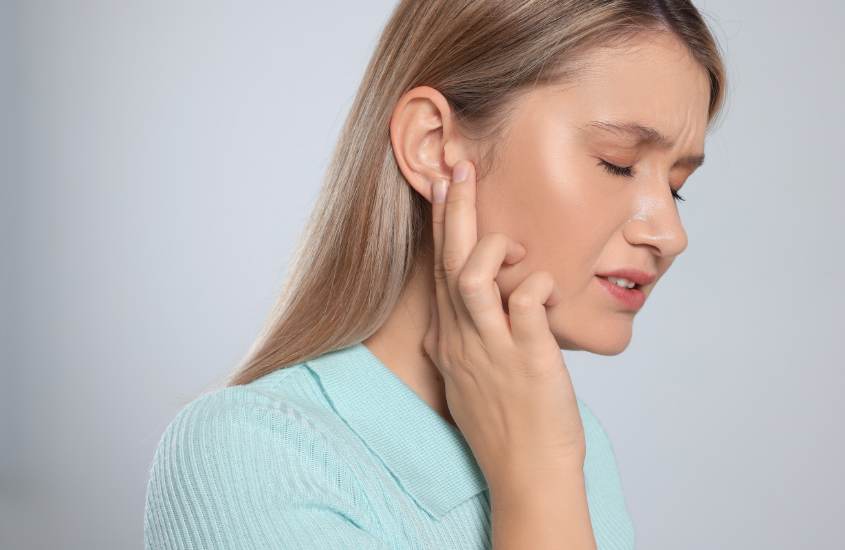Understanding Pulsatile Tinnitus: NHS Insights
Pulsatile tinnitus, a condition where one hears rhythmic pulsing sounds in sync with their heartbeat, can be deeply unsettling. The NHS (National Health Service) offers valuable resources and guidance for those affected by this condition. This article delves into the intricacies of pulsatile tinnitus, exploring its causes, symptoms, diagnosis, and treatment options available through the NHS.
What is Pulsatile Tinnitus?
Pulsatile tinnitus is a specific type of tinnitus characterized by rhythmic noise that matches the beat of the heart. Unlike other forms of tinnitus, which present as a constant ringing or buzzing, pulsatile tinnitus often manifests as a whooshing, thumping, or throbbing sound. This auditory sensation can significantly impact a person’s quality of life, leading to sleep disturbances, concentration issues, and emotional distress. Understanding the nature of this condition is the first step toward seeking appropriate medical care.
Causes and Risk Factors
The underlying causes of pulsatile tinnitus are diverse and can range from benign to more serious medical conditions. One common cause is turbulent blood flow in the vessels near the ear. This turbulence can be due to atherosclerosis, where plaque builds up in the arteries, narrowing them and causing blood to flow irregularly. Another potential cause is high blood pressure, which increases the force of blood against the artery walls, resulting in audible pulsing sounds.
In some cases, structural abnormalities in the ear or surrounding blood vessels can lead to pulsatile tinnitus. Conditions such as arteriovenous malformations (AVMs) or glomus tumors can create abnormal connections between arteries and veins, producing the characteristic noise. Additionally, increased intracranial pressure, often associated with conditions like idiopathic intracranial hypertension, can also result in pulsatile tinnitus.

Symptoms and Diagnosis
The primary symptom of pulsatile tinnitus is the perception of a rhythmic noise that aligns with the heartbeat. This noise can be heard in one or both ears and may vary in intensity. Some individuals also experience dizziness, headaches, or visual disturbances, which can further complicate the clinical picture. Given the potential for serious underlying causes, it is crucial to seek medical evaluation if you experience pulsatile tinnitus.
The diagnostic process typically begins with a thorough medical history and physical examination. The NHS recommends several tests to identify the underlying cause of pulsatile tinnitus. These tests may include blood pressure measurements, blood tests, and imaging studies such as ultrasound, MRI, or CT scans. These imaging techniques help visualize the blood vessels and structures around the ear, aiding in the identification of abnormalities that could be responsible for the symptoms.
Treatment Options Available through the NHS
Treatment for pulsatile tinnitus depends on the identified underlying cause. In cases where high blood pressure or atherosclerosis is the culprit, managing these conditions through lifestyle changes and medication can often reduce or eliminate the pulsatile noise. The NHS provides comprehensive care for managing cardiovascular health, including dietary advice, exercise programs, and medications to control blood pressure and cholesterol levels.
For structural abnormalities such as AVMs or tumors, more invasive interventions might be necessary. Surgical options or interventional radiology procedures can address these issues directly. The NHS offers specialized care in these areas, with access to experienced surgeons and state-of-the-art facilities to ensure the best possible outcomes for patients.
In situations where increased intracranial pressure is causing pulsatile tinnitus, treatments may include medications to reduce fluid buildup or surgical procedures to relieve pressure. The NHS’s multidisciplinary approach ensures that patients receive holistic care, addressing not only the symptoms but also the underlying health conditions contributing to pulsatile tinnitus.
Living with Pulsatile Tinnitus: Support and Resources
Living with pulsatile tinnitus can be challenging, but numerous resources and support systems are available to help individuals cope. The NHS offers access to audiologists and hearing therapists who specialize in tinnitus management. These professionals can provide counseling, sound therapy, and coping strategies to help reduce the impact of tinnitus on daily life.
Support groups and online communities can also be valuable resources for those living with pulsatile tinnitus. Connecting with others who share similar experiences can provide emotional support and practical advice. The NHS website and various health charities offer information on support groups and forums where individuals can share their stories and find encouragement.
In addition to professional support, self-care strategies can play a crucial role in managing pulsatile tinnitus. Practices such as mindfulness meditation, yoga, and regular exercise can help reduce stress and improve overall well-being. Maintaining a healthy lifestyle, with a balanced diet and adequate sleep, can also contribute to better management of tinnitus symptoms.
Conclusion
Pulsatile tinnitus is a complex condition that can significantly affect one’s quality of life. Understanding its causes, symptoms, and available treatments is essential for those experiencing this condition. The NHS provides comprehensive care and resources to help individuals manage pulsatile tinnitus effectively. From initial diagnosis to specialized treatment and ongoing support, the NHS’s multidisciplinary approach ensures that patients receive holistic and patient-centered care.
Seeking medical attention promptly and following through with recommended treatments can make a substantial difference in managing pulsatile tinnitus. With the right support and resources, individuals can find relief and improve their quality of life. By leveraging the expertise and services offered by the NHS, those affected by pulsatile tinnitus can navigate their journey toward better health and well-being. Click Here










